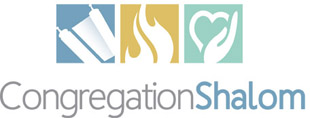Let’s Come Together to Help Afghan Refugees
September 2021 В Keeping Connected
It has been hard to watch the news these last few weeks. Images from Afghanistan are heart-breaking. In particular I want to honor our fallen service members who were engaged in a truly heroic effort of saving lives. May their memories be a blessing and may their families find comfort in knowing that they were serving their nation and working to preserve the lives of innocent people.
Most of us have listened to interviews with veterans and active duty military professionals over the last week. All those I heard strongly believed that as Americans we are obligated to help the Afghanis who bravely worked with American troops over the last 20 years. They believe that not only is it the moral thing to do, but that it is in our national interest to demonstrate that we will protect those who help us during time of war.
Although their position resonates with me as an American, I also find myself feeling moved to act because I am a Jew. Many, many times over the years you have heard me speak and teach about our tradition’s mandate to welcome the stranger and immigrant. This mitzvah is a core part of Judaism and is mentioned at least 36 times in the Torah. In the very center of the Torah we find the mitzvot that are known as the Holiness Codes. In the text, Parashat Kedoshim, amongst the many mandates to protect those less fortunate than ourselves, we are commanded, “The stranger who resides with you shall be to you as one of your citizens; you shall love them as yourself, for you were strangers in the land of Egypt” (19:33-34). This is a sentiment that is repeated over and over again in the Torah, including in last week’s Torah portion, Ki Tetze.
Some of you may have joined us for last week’s Bat Mitzvah when Misa Hirschel taught us that her portion commanded that we should treat others with kindness because we were once slaves in the land of Egypt. Misa shared this insight: “I disagree because this suggests that those who were not slaves or who have had no experience of poverty are not commanded to be kind to others. The suggestion is that if we have not had the experience, we are not commanded to be sympathetic. There are many instances in life where it is impossible to have had or fully understand the experiences of others.”
I think that Misa’s insights are meaningful and are a challenge to those of us who are able to compartmentalize our lives away from the lives of those facing harrowing challenges like the Afghani refugees. I know that I cannot even begin to relate to what they are facing; the fear, the danger, the grief. I share this with you because in the last day, I have received two e-mails from the International Institute of New England. In one of them, Emma Tobin, the Chief Program Officer wrote to me saying, “IINE is proposing to receive 150 Afghan evacuees in Eastern, MA, many of whom will resettle in Lowell. These people will be “paroled” into the country, beginning in September, and willВ notВ beВ eligible for public benefits, at least initially. They’ll receive “refugee-like” services and cash assistance from IINE, but shorter in duration. IINE is committed to supporting Afghan evacuees above and beyond what the federal government is requiring of us, because we believe strongly it’s the right thing to do. We also hope – and plan to advocate – for stronger and longer public assistance.
That said, we know that we will need to fundraise significantly for this effort. The evacuees will need shelter, food, clothing, cash assistance – all of the basic necessities of life for at least their first few months in the country. We believe this will need to be a community-wide effort – and if there’s any community that can do it, it’s Lowell. I woke up this morning to dozens of offers of support – it’s very moving.”
I know that our Social Action/Justice Committee hopes to help with these efforts and may be reaching out to you and your family for support. Think about arriving in a new country, not knowing the language, not having anything. I believe that our community can make a difference in this huge effort. Please reach out to Susan McHugh at socialaction@congregationshalom.org or me if you would like to get involved.
Wishing you a Sweet and Healthy New Year,
Rabbi Shoshana M. Perry
